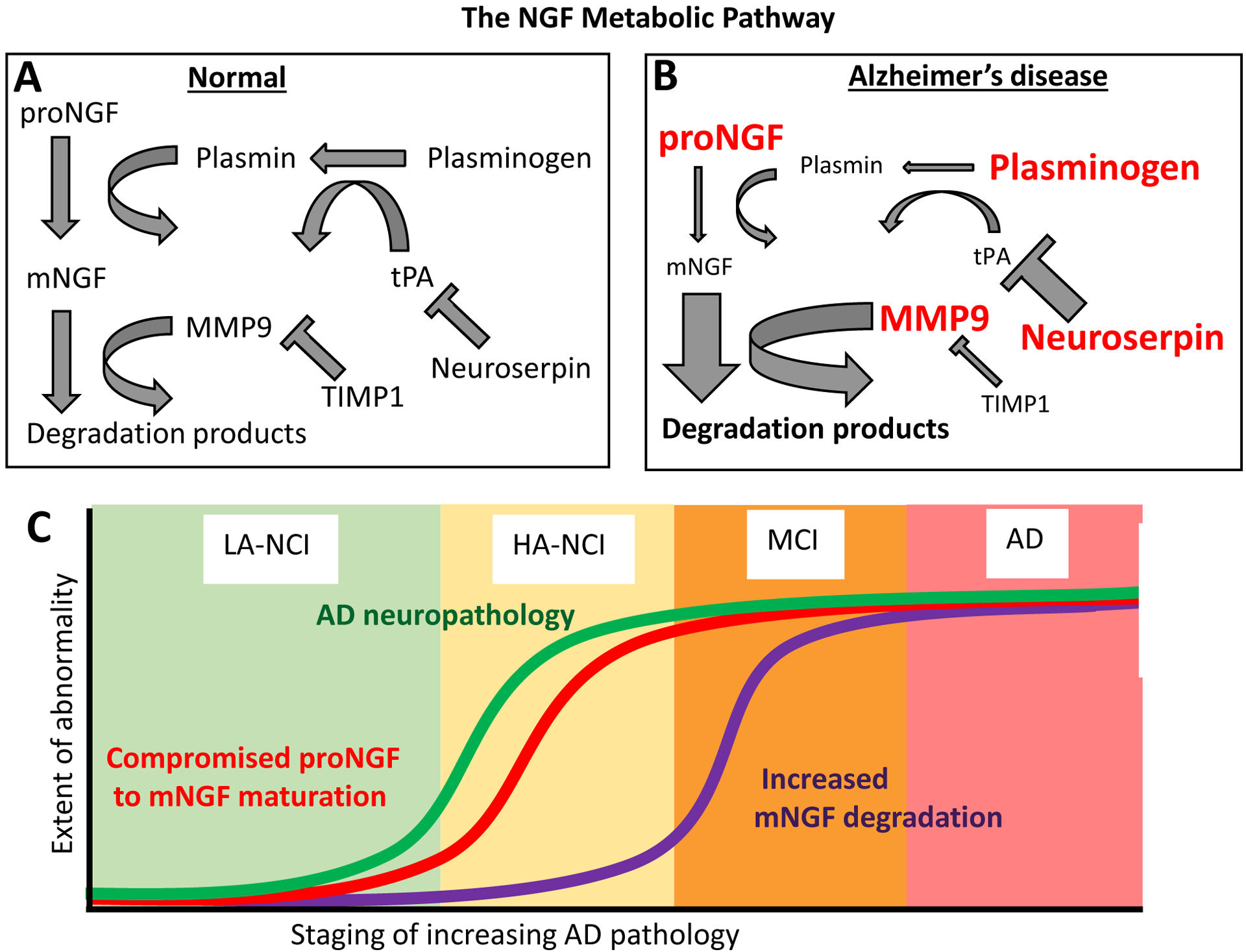Figure 1. Schematic representation of the NGF metabolic pathway and its compromise in the continuum of Alzheimer’s disease.

A: ProNGF secreted from BFCN target cells is converted extracellularly to mature NGF (mNGF) by plasmin, which is derived from plasminogen by tissue plasminogen activator (tPA). The latter is regulated by its endogenous inhibitor, neuroserpin. Mature NGF is degraded by matrix metallo-protease 9 (MMP9), which is regulated by its endogenous inhibitor TIMP1 (tissue inhibitor of metallo-proteinases 1). B: In Alzheimer’s disease, neuroserpin levels are increased. The resulting deficit in tPA activity leads to impaired maturation of plasminogen to plasmin, evidenced by accumulating plasminogen. ProNGF likewise accumulates as it fails to be converted to mature NGF, which is decreased. Simultaneously, MMP9 activity is increased while its inhibitor, TIMP1, is decreased. C: While deficits in proNGF maturation are evident alongside AD-like Aβ accumulation in individuals with no cognitive impairment (NCI), excessive NGF degradation is only evident in individuals diagnosed as MCI or AD.
